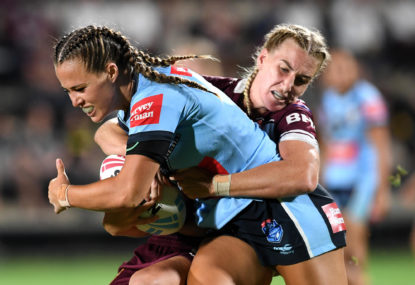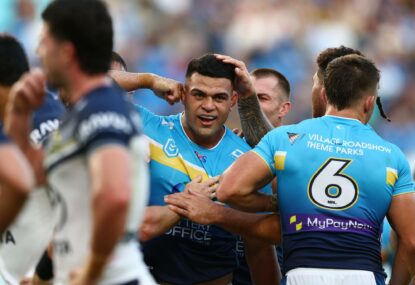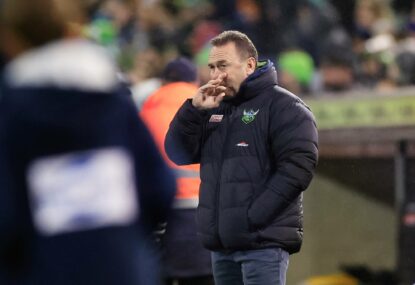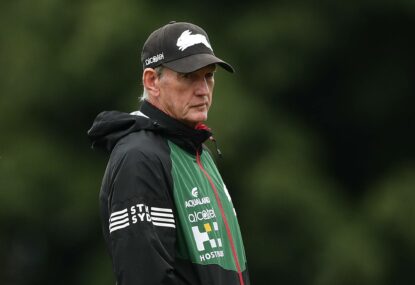NRL player agents are major figures in the rugby league ecosystem. They are well known within the game’s inner circle, but not as well known to the fans.
There are a few agents with big books of marquee players who carry significant influence and have their fingers in a lot of pies. The typical agency contract involves an entitlement to a commission of 6-7 percent of a player’s earnings (materially higher than the average AFL agent’s rate of 2-5%).
In addition, some agents partner with players in business ventures and the earn from this can be higher, as is the commission on endorsements. Player agents also regularly represent coaches, NRL media personalities and even administrators, not just players… but more on this below.
Player agents are just like any other type of agent. They do the “dirty work”. They alleviate the need for the player to negotiate their own contract, a task most athletes have little experience in.
Agents also know how the game works; have a network of extensive contacts; can play a vital role in finding opportunities, greasing the wheels and advancing the interests of players by eliminating friction between clubs and players. I’ve dealt with a few agents and some of them are pretty good people who care about their clients.
But is this enough, and do players and the game benefit from the agents and the commission model? Almost every graded player has an agent so it must be necessary-right? Well, yes and no.
Some players need agents more than others. This depends on a wide range of factors, including the player’s experience, intelligence, worldliness, presence of alternative trusted advisers and their marketability and talent.
There are many players who could drop their agents tomorrow and pocket the 7 percent commission and maybe even strike betters deals for themselves, yet only a few players choose to self- manage their affairs.
There are other players who would not know where to start and may not rise above playing park football without an agent. Agents can also provide lucrative post-playing career opportunities and some are genuine father figures or mentors who steer their players through life’s challenges.
The Rugby League Player Agent Accreditation Scheme was introduced in 2005, ensuring that all agents in rugby league are registered and regulated. Agents must comply with the schemes’ rules and code of ethics and pay an annual accreditation fee.
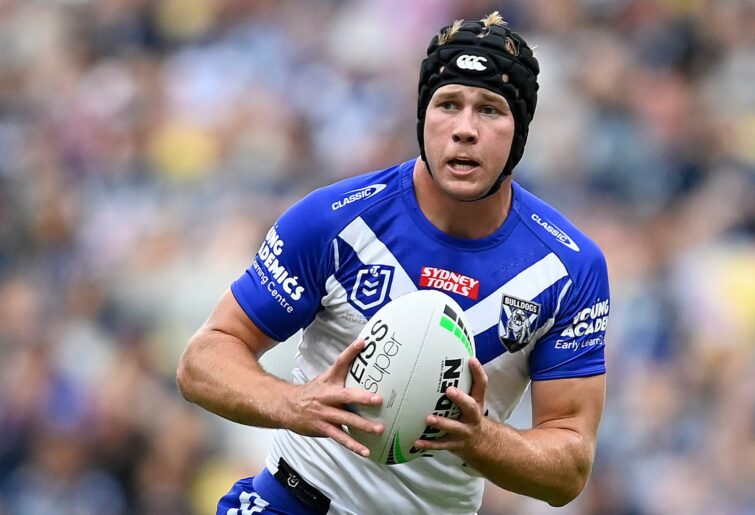
Players move regularly, but should there be more rules about how it happens? (Photo by Ian Hitchcock/Getty Images)
There are various safeguards and sanctions in place to protect players and to ensure minimum standards are observed. In recent years the NRL has imposed serious sanctions for breaches of the Scheme and even de registered player agents. The Scheme rules are comprehensive. So, in this respect it’s a well- regulated industry, not a wild frontier.
There is however a major weak spot in the accreditation scheme and in the system and market forces don’t seem to adequately address this: conflicts of interest. Player agents are largely unconstrained in their ability to wear multiple hats and juggle obvious conflicts of interests.
What do I mean by this? Well imagine a real estate agent acting for the buyer and seller of the same property or a lawyer acting for both spouses in a divorce dispute.
Player agents regularly represent coaches and players in the same team, manage players in the same playing position (sometimes in the same club) and have media roles which give them an opportunity or talk up their own books or down other agent’s books.
Some even have club roles. Whether these conflicts are a good or bad thing depends on who wins or loses from the conflicts in any particular case. Conflicts of interests rarely produce a win/win outcome. I’ve kept this general to protect the innocent but we can all recall instances of conflicts affecting the outcome of contract negotiations to the detriment of one person or another.
Before everyone yells “there are rules around all this”. Yes, there are. Indeed, the scheme includes specific conflict rules.
The trouble with the rules is that they can be readily subverted, and often are. Indeed, the rules actually allow blatant conflicts provided there is full disclosure and consent. But the idea of providing informed consent to a conflict is fraught with major difficulties.
Many players would struggle to appreciate the full significance of an agent conflict even if the disclosure was adequate, which is against the likely odds. Some conflicts can be indirect or subtle and the agent might not even recognise it.

Joseph Suaali’i and Joseph Manu. (Photo by Bradley Kanaris/Getty Images)
Often the clubs or marquee players benefit from these conflicts at the expense of the less marketable and experienced player.
It’s sometimes hard to know whether the conflict will cause you prejudice until it’s too late. Conflicts can’t always be anticipated and can arise a long time after a player is signed up and by the time they do the agreements are locked in.
Can you imagine a player agent saying “Now, Nathan and Mitchell, both your contracts expire next year and the Dolphins need a halfback and will pay $2m a season for five years. I can’t properly represent both of you in negotiations due to the conflict rules so I think you will either both need to find another manager or if you both agree, I can represent only one of you in discussions with the Dolphins”.
Aah yeah right! This hypothetical example is extreme but illustrates the problem.
Players and the NRL might want to start to think about this a bit more deeply than they have in the past and ask more questions of agents.
The more established and experienced players should also think about exploring a different agency model, say one that doesn’t involve trailing commissions of 7 percent often in perpetuity, such as pay -for- play models where the player pays an hourly rate for the work performed and the representation is time limited.
This is how most major corporations negotiate billion dollar contracts, paying lawyers and advisors an hourly rate rather than a % of the contract value. They also have a monopoly over the adviser during the negotiations and don’t share them with the other side of the table!
There are a lot of vested interests and winners and losers in the current player agent model and just because things have been done a certain one way for a long time doesn’t necessarily mean it’s the best way.































































































